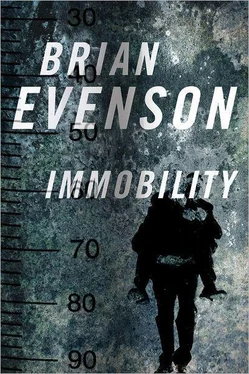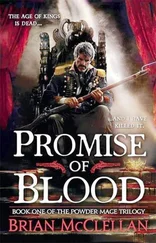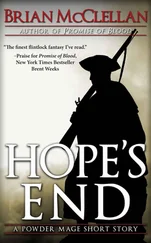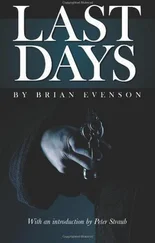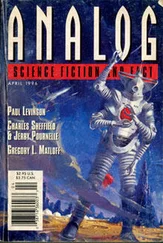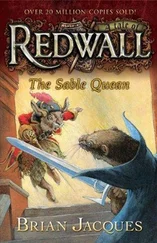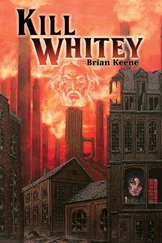They carefully deposited Horkai in the chair behind the desk, and he spread his palms flat on the desktop to keep from falling. Then they took the three chairs facing him.
“Comfortable?” Rasmus asked. In the dim light, he looked odd, his outline fuzzy, his eyes pooled in darkness and barely visible.
“That’s not exactly the word,” said Horkai, his discomfort only slowly receding.
Rasmus nodded. He looked to Oleg, then turned to look at Olaf. “Where should I start?” he asked. And then he looked at Horkai. “Knus didn’t tell you anything?”
“Who is Knus?”
“The person who woke you up,” said Oleg. “The one you tried to kill.”
“Can’t you keep anything in your head?” said Olaf.
“Now, boys,” said Rasmus. “He’s been asleep a long time. It’ll likely take him a while to find his bearings.” He turned to Horkai expectantly.
Horkai started to shake his head, stopped abruptly from the pain. “He just tried to make me guess my name.”
“And did you guess it?”
“We didn’t exactly get that far,” said Horkai. “I don’t like guessing games.”
Rasmus sighed. “Knus was just following protocol,” he said. “He was doing his best to help.”
Horkai didn’t say anything. Out of the corner of his eye he caught a glimpse of Oleg and Olaf smirking at each other. Or at least he thought it was a smirk; in the low light it was hard to be certain. Meanwhile Rasmus had his fingers tented beneath his chin and, attentive, was staring at him.
* * *
“I SUPPOSE YOU’RE WONDERING why we woke you, Josef,” he finally said.
“Among other things,” said Horkai.
“It’s simple,” said Oleg. “We need you.”
“For what?” asked Horkai.
“All in good time, Oleg,” said Rasmus. He turned to Horkai. “Yes,” he said, “that’s true. We do need you, Josef. But that’s hardly where we should begin.”
“Do I know you?” asked Horkai.
“Excuse me?” said Rasmus.
“Is that my name? Why do you keep calling me by it?” asked Horkai. “Are we on a first name basis? Do I know you?”
“No,” said Rasmus, dragging the word out. “I don’t exactly know you. Or rather, I was introduced to you years ago, but I don’t exactly remember that. It’s something my father told me about. You used to know my father, back when he was in his thirties. He talked about you sometimes. He trusted you.”
“What’s his name?”
“Lammert,” Rasmus said. And when Horkai didn’t answer added, “Last name, Visser. He knew you,” he said. “He found you.”
He turned the name over in his head. Lammert. Did the name say something to him? Could he picture a face? No, not exactly, but there was something there, some resonance, a glimmer. “Of course I remember Lammert,” he said to Rasmus, not lying exactly, but not exactly telling the truth either. Rasmus nodded, still watching him. “How is he?” Horkai asked.
“Dead,” said Rasmus. “But, then again, most people are. He’s been dead for a long time, ever since I was a child. He would have been sixty-three this year.”
“How long have I been stored?”
“Thirty years. Give or take.”
“Thirty years?”
Rasmus nodded. “That’s why your memory’s faulty and your nerves are off—they haven’t been in use for three decades.” He looked curiously at Horkai. “How much do you remember about storage?” he asked. “Is that part of your memory hazy, too? Storage isn’t meant to be long term, is normally just a few weeks or months, rarely more than a year at most.”
“Why would you keep me under for so long?”
Rasmus looked at him strangely. “What do you remember?” he asked.
“Most of it,” Horkai lied. Why did he feel compelled to lie?
“Such as?”
“Just begin from the beginning,” said Horkai cautiously. “As you say, I’ve been stored a long time. It won’t hurt me to hear even the parts I already know again.”
Rasmus looked at him for a long time, then slowly smiled. “All right,” he said. “As you wish.” Placing a large hand on each knee, he began to speak.
“DO YOU REMEMBER THE REASON you were stored?” Rasmus asked.
Horkai didn’t bother to answer. Rasmus swallowed. He seemed nervous somehow. Why? wondered Horkai. What am I failing to understand?
“Obviously there’s something wrong with you,” said Olaf.
“Your legs, for instance,” said Oleg.
Rasmus nodded. “The legs are a part of it,” he said. He licked his lips. “I learned all of this from my father,” he said, his eyes flicking momentarily away. “And many years ago at that, when I was very young. If I get some of the details wrong, that’s why.”
“All right,” said Horkai.
“At some point you were exposed,” said Rasmus. “I’m not talking about a minor event, about brief ambient exposure like we just went through outside. According to Lammert, you were close enough that the light must have shone right through your skin. Close enough that by all rights you should have died.”
“But you didn’t die,” said Olaf.
“At least not completely,” said Oleg.
“Be quiet, you two,” said Rasmus. “Let me do the talking.” He turned back to Horkai. “What did happen,” he said, “was that you lost all your hair, every last bit of it. On the side facing the blaze, your skin was charred to a crisp. And then you lay there. For how many days and nights, who can say? Until someone found you.”
“Your father,” said Horkai, thinking at the same time, Did this really happen? What really happened?
Rasmus nodded. “Lammert. He thought you were a corpse at first, but you moved. He was sheathed, but still couldn’t stay out long if he wanted to stay alive. But there you were, half your body blackened, exposed for days, unconscious, but still alive.”
“And then he—,” started Oleg.
“Shut up, Oleg,” said Rasmus, then turned back to Horkai. “He stood you up and shouldered you and carried you back is what he did. He installed you in a secure ward—we still had such things in those days,” he said, turning to Oleg and Olaf. “He attached you to an IV and waited for you to die.”
“Only I didn’t die,” said Horkai.
“Not exactly,” said Rasmus. “In a way, you didn’t die. In another way, you died over and over again. Your throat would fill with fluid. Your breath was at first sticky and then rattling and then it would stop completely. Sometimes for hours, apparently. And then, minutes later, hours later, seemingly dead, you suddenly would cough up dark clots of blood and start breathing again. It was terrible to watch, my father said. It was like death was toying with you, killing you and then bringing you back again. He used to describe how he watched you, how once he even went so far as to drag your body away to dispose of it, only to find, once he was already well on his way down the hall, that you were no longer dead.
“And then, after days and days of this, weeks of hesitation and fumbling along the border between life and death, something changed in you. It terrified him. Over the course of a few days, your ruined skin sloughed away to reveal unblemished, hairless pink flesh beneath. A day or two later, you opened your eyes and spoke, just as if nothing had happened.”
Horkai nodded. “What did you think?” he asked.
“Me?” said Rasmus. “I didn’t think anything. I wasn’t there. I was just a child.”
“What did your father think?” Horkai asked.
“My father was surprised,” said Rasmus. His cadence was like that of someone telling a well-rehearsed story. “He thought that at the very least all that exposure should have ruined your mind, that if nothing else, it should have made your brain sizzle in your skull and driven you mad.”
Читать дальше
